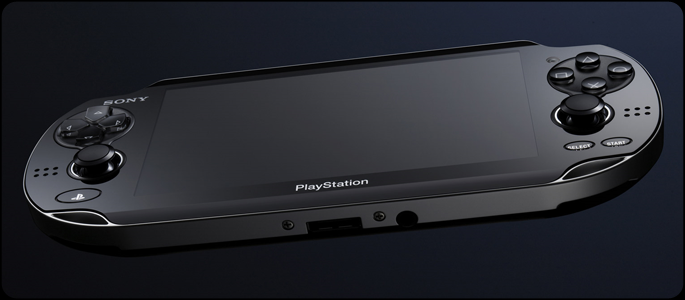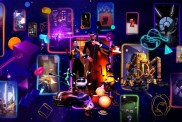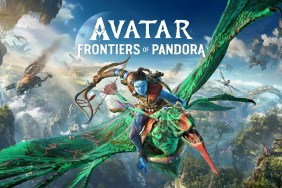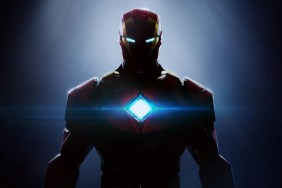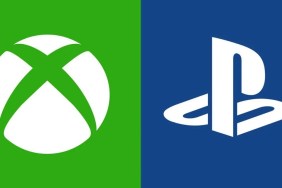When a new platform is released, it gives developers an exciting chance to create something unique and different that entertains an entirely new audience. For the NGP, developers will once again be able to create compelling new experiences that push the boundaries of what we expect in games, and to do that they will need a powerful game engine that allows them to make the titles they want, rather than what they are constrained to make with a limited engine. To talk about bringing the Vision Game Engine to the NGP/Vita, the rise of freeware and prevalence of other engines, PlayStation LifeStyle chatted to Trinigy’s General Manager, Felix Roeken.
Hi Felix, could you start by introducing yourself and telling us about your work at Trinigy?
 Sure. I am the general manager at Trinigy. In that role, I’m in charge of sales, finance and marketing.
Sure. I am the general manager at Trinigy. In that role, I’m in charge of sales, finance and marketing.
How does the NGP compare to the PlayStation 3 and 360 in terms of power, and how easy it is to program on?
Sony has done an exceptional job at providing a stable SDK with useful tools already at a very early stage. This has made developing for NGP easier than for some other platforms we have worked on. When it comes to performance, NGP is certainly far superior to any mobile device you can currently buy. We are using a lot of the sophisticated rendering effects and complex material shaders originally developed for PlayStation 3 and Xbox 360 on NGP these days, and the visual quality is extremely compelling.
Will it be easy to port games across to the NGP and vice-versa?
Using the Vision Game Engine, it will. Given the flexibility of our engine, it is pretty straightforward to port your game from our currently supported platforms to NGP. You can use the same tools environment, the same asset types, the same game code, and many of the graphical effects provided by other platform versions of the engine.
The Vision Game Engine for NGP also comes with full support for NGP’s multi touch screen (front), multi touch pad (rear) and six-axis motion sensing system (three-axis gyroscope, three-axis accelerometer) features. There is a platform-independent multi touch input device inside the Vision Game Engine now, and it can be accessed in exactly the same way as any other input device. Analog sticks, shoulder buttons and directional buttons and action buttons on NGP are also fully supported in the same way as the corresponding input elements found on consoles or PC gamepads.
What differentiates the Vision Game Engine from other engines?
In a word, flexibility. There is no other engine that offers game developers as much development freedom as the Vision Game Engine.
The Vision Game Engine provides a comprehensive set of fully integrated features, ranging from state-of-the-art visual effects, to streaming and scripting, to audio, networking and physics solutions. Together with Vision’s WYSIWYG (what-you-see-is-what-you-get) workflow, developers can get started quickly and work more efficiently in the creation of highly immersive, high-performance games.
Both the runtime and tools have clean, well-structured Plugin APIs, so new features and modules can easily be added without modifying the engine’s source code. This modularity also makes it easy to fit Vision into existing production pipelines.
The Vision Game Engine supports a broad range of platforms, including PlayStation 3, Xbox 360, Wii, Windows (DX9-11), browsers, and now NGP. We’ll have support for iOS and Android very soon. The engine is also ideal for the development of games running on PlayStation®Network, XBLA and WiiWare.
It comes with a scalable pricing model that works for game development studios of all sizes. Rather than taking royalties on the backend, we can either charge a flat fee or a percentage of a developer’s starting budget. With the percentage approach, it’s one affordable fixed percentage, which makes it predictable and easy for the developer.
Finally, unlike many engine companies, we really focus on supporting developers. We have support centers around the world that developers can contact via email or telephone. We have a support site where developers can ask questions. We provide regular updates, documentation, tutorial videos and more. From the feedback we get, we know these things are really appreciated and far beyond what many other game engine companies do.
Some people claim that the Unreal Engine has a too strong grip on the middleware engine market – would you agree with this?
The Unreal Engine definitely has a strong following and name recognition, which is partly due to the success of Epic’s games, and partly due to their longevity. I would hesitate to say that they have a strong grip on the market though. There are many other game engines, ours included, that are shaking up the middleware landscape.
How hard is it to compete with freeware engines?
There are a lot of freeware engines out there; but in all honesty, we rarely find ourselves competing with freeware engines. This is typically because they either lack the maturity, the features, the flexibility, the multi-platform support or the performance, or a combination of these. They usually also lack the dedicated support, which we feel is still a critical component to offering a middleware solution.
Are you aiming at supporting smaller, digital titles, or full blown releases – or both?
Actually, we’ve supported both all along. Our technology is designed to support any size of title and any genre of title. And from the platform perspective, the Vision Game Engine is optimized for PlayStation 3, XBOX360, Wii, Windows (DX9-11), browsers and services such as PSN, XBLA and WiiWare.
Five years ago we changed our pricing model to appeal to developers of any size, which I already mentioned above. As a result, we’re seeing casual games, digitally downloadable games and major AAA titles all being created with the Vision Game Engine.
When will the VGE release for the NGP?
The Vision Game Engine for NGP will release on June 1, 2011.
Have you had a lot of developer interest in the engine for NGP?
We’ve spoken to many NGP developers, and are currently working closely with a few of them. We’ve also spoken to quite a few developers who are interested in looking at NGP as a possible platform for their games. So yes, we’re really excited and encouraged by the amount of interest we’re seeing.
